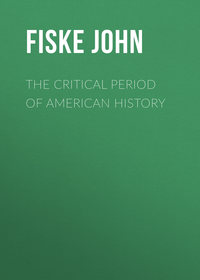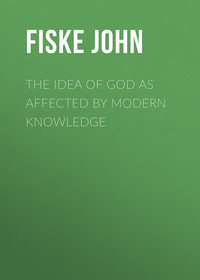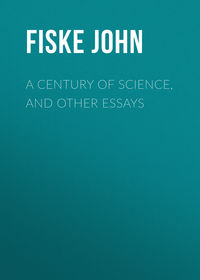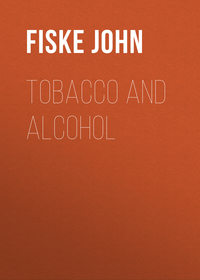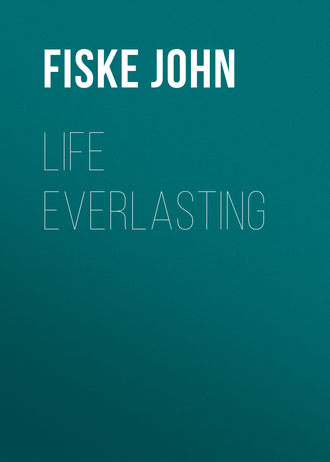 полная версия
полная версияLife Everlasting
Upon these conclusions we cannot directly base an argument sustaining man's immortality, but we certainly remove the only serious objection that has ever been alleged against it. We leave the field clear for those general considerations of philosophic analogy and moral probability which are all the guides upon which we can call for help in this arduous inquiry. But it may be suggested at this point that perhaps our argument has acquired a wider scope than was at first contemplated. Consciousness is not peculiar to man, but is possessed in some degree by the greater portion of the animal kingdom. Among the higher birds and mammals the amount of conscious life is very considerable, and here too it must be argued that consciousness is not a product of molecular motion in the nervous system but its concomitant. The same argument which removes the objection to immortality for man removes it also for an indefinite number of animal species. What, then, is to be said of the reasonableness of supposing a future life for sundry lower animals? and if we were to reach a negative conclusion in their case, while reaching a positive conclusion in the case of man, on what principle are we to draw the line? Sometimes we hear this question propounded as a difficulty in the Darwinian theory of man's origin. How could immortal man have been produced through heredity from an ephemeral brute?
The difficulty is one of the sort which we are apt to encounter when we try to designate absolute beginnings and to mark off hard and fast lines, for in Nature there are no such things. Voltaire asked the same kind of question more than a hundred years before Darwinism had been heard of. When does the immortal soul of the human individual come into existence? Is it at the moment of conception, or when the new-born babe begins to breathe, or at some moment between, or even perhaps at some era of early childhood when moral responsibility can be said to have begun? Some of the answers to these questions would transform an ephemeral creature into an immortal one in the same person. The most proper answer is a frank confession of ignorance. Whether it be in the individual or in the race, we cannot tell just where the soul comes in. A due heed to Nature's analogies, however, is helpful in this connection. The maxim that Nature makes no leaps is far from true. Nature's habit is to make prodigious leaps, but only after long preparation. Slowly rises the water in the tank, inch by inch through many a weary hour, until at length it over-flows and straightway vast systems of machinery are awakened into rumbling life. Slowly grows the eccentricity of the ellipse as you shift its position in the cone, and still the nature of the curve is not essentially varied, when suddenly, presto! one more little shift, and the finite ellipse becomes an infinite hyperbola mocking our feeble powers of conception as it speeds away on its everlasting career. Perhaps in our ignorance such analogies may help us to realize the possibility that steadily developing ephemeral conscious life may reach a critical point where it suddenly puts on immortality.
If this suggestion is a sound one, we must probably regard the conscious life of animals as only the ephemeral adumbration of that which comes to maturity in man. The considerations adduced this evening must convince us that we are at perfect liberty to treat the question of man's immortality in the disinterested spirit of the naturalist. In the course of evolution there is no more philosophical difficulty in man's acquiring immortal life than in his acquiring the erect posture and articulate speech. In my little book "The Destiny of Man" I insisted upon the dramatic tendency or divine purpose indicated in the long cosmic process which has manifestly from the outset aimed at the production and perfection of the higher spiritual attributes of humanity. In another little book, "Through Nature to God," I called attention to the fact that belief in an Unseen World, especially associated with the moral significance of life, was coeval with the genesis of Man, and had played a predominating part in his development ever since, and I argued that under such circumstances the belief must be based upon an eternal reality, since a contrary supposition is negatived by all that we know of the habits and methods of the cosmic process of Evolution. No time is left here to repeat these arguments, but I hope enough has been said to indicate the probability that the patient study of evolution is likely soon to supply the basis for a Natural Theology more comprehensive, more profound, and more hopeful than could formerly have been imagined. The Nineteenth Century has borne the brunt, the Twentieth will reap the fruition.
1
Shaler, The Individual, p. 194.
2
Herbert Spencer, First Principles (final ed.), p. 185.




